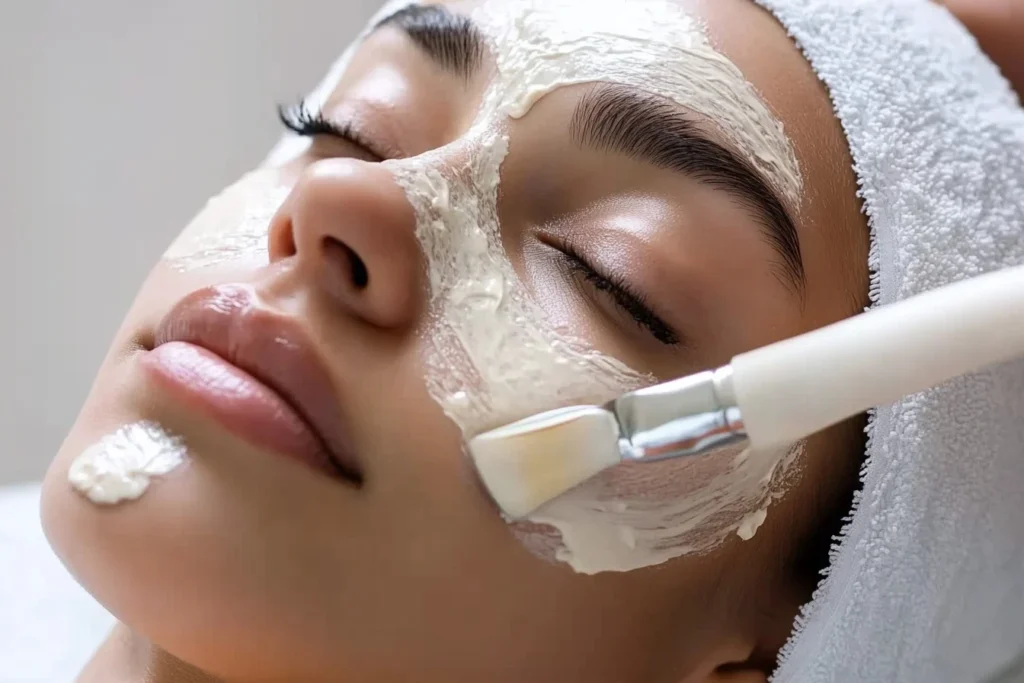What to Know Before Getting a Chemical Peel
As a result although chemical peeling has become one of the most frequent employer in maturing web page layout or to restore sun damaged and discolored skin. A chemical peel is a viable solution if you are struggling with acne scarring, hyperpigmentation or simply wanting younger looking fresh skin. But, before you rush and book an appointment there are several key things to take into consideration.
What is a Chemical Peel?
A chemical peel is a procedure that involves the application of a solution to the skin in order remove dead skin cells and exfoliate. The process exposes the newer, smoother skin underneath and can help to address a number of different skin issues. There are 3 types of chemical peels superficial medium deep, based on there str and how deep they penetrate into the skin
Types of Chemical Peels
- Light Peels: These superfical peels are the lightest ones and they frequently incorporate alpha hydroxy acids (AHAs) to strip away dead skin cells. Good for all skin types, and best used to treat light pigmentation changes as well as superficial texturing issues.
- Medium Peels: These penetrate through skin surface but deeper than superficial peels, TCA (trichloroacetic acid) its primary agent. Though the longer downtime, they are better for sun damage and wrinkles.
- Deep Clean: The most aggressive of all, which is why they penetrate deeper and need phenol as the active ingredient to improve deep lines . These options come with major downtime and must only be performed by trained professionals.
Benefits of Chemical Peels
- Beautiful Skin Texture: Regular sessions will smooth your skin.
- Less Fine Lines: They are able to reduce the look of fine lines and wrinkles.
- Hyperpigmentation and sun damage in the skin can be improved through chemical peels thereby resulting it to become a single color.
- Minimize Acne: An acne improvement is also witnessed in many after undergoing multiple treatments.
Preparing for a Chemical Peel
Preparation is key to having your best season. Here are a few tips:
- Professional Opinion: Consult a dermatologist or licensed skincare professional before having your skin peeled, and have them evaluate your needs.
- Refrain from using Certain Products: Retinoids, alpha hydroxy acids and other irritating products must be ceased at least one week before the peel.
- Stay Sun-Safe: Keep your sun exposure to a minimum before in order to avoid complications and make certain that the skin on which treatment is performed will be good health.
What Happens During the Procedure
There may be some stinging while the peel takes place, depending on what kind of chemical is being used. Superficial peels cause a slight stinging, but deeper ones feel like a burning. Application usually takes anywhere from a few minutes to 30 for very deep peels.
Aftercare
After-peel care is as important as the preparation. Here are some aftercare tips:
- Tips to Avoid Dry SkinAfter Wearing Gloves and Masks.
- Say No To The Sun: Wear a hat and load up on sunscreen as your skin will be even more susceptible to harmful UV rays post-peel.
- Aftercare plan made by your practitioner should be followed for best result, so it is important.
Conclusion
While chemical peels can deliver some amazing improvements to your skin in texture and tone, it's really important for you have information about them going into the process. Knowing the type, preparation and aftercare will ensure you get best results. If you're wandering about chemical peel, then please do not wait, rather seek help from professionals to go through the right way.




